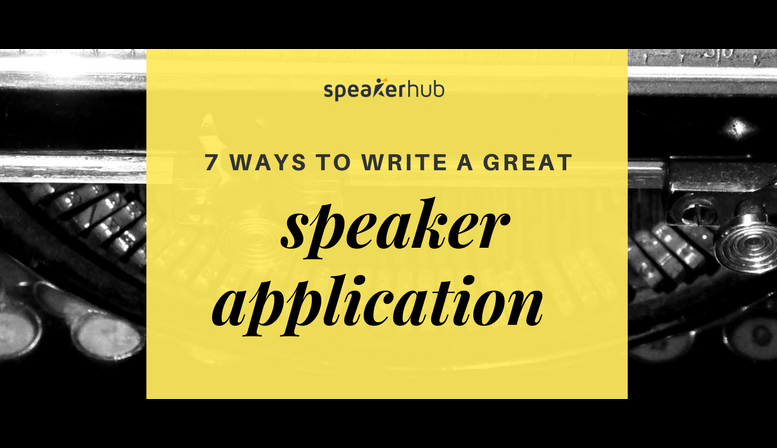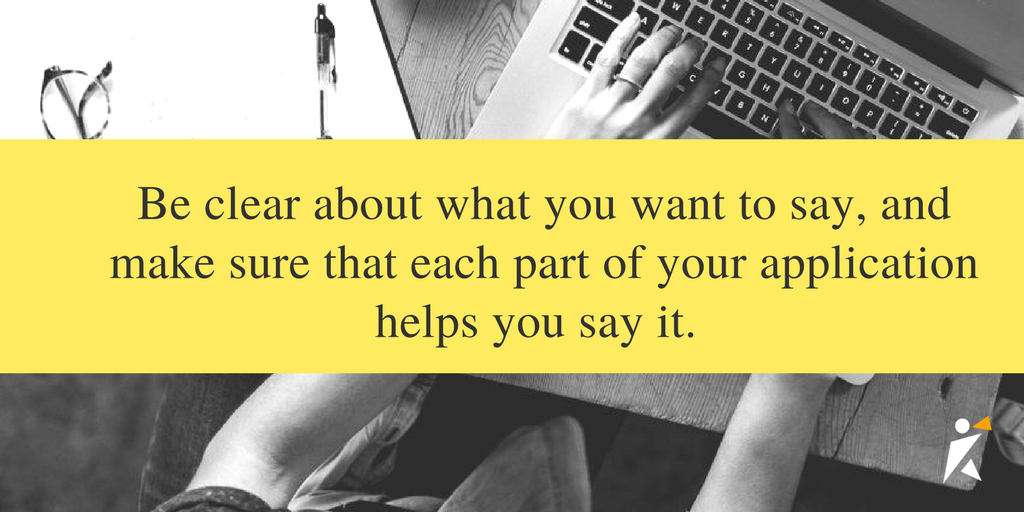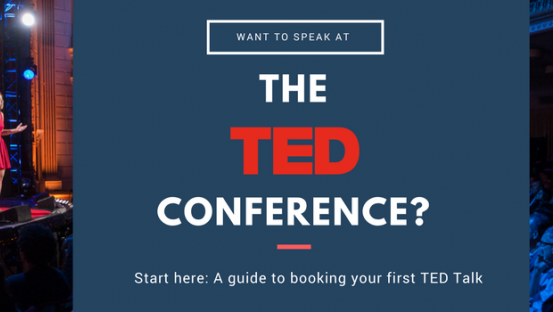7 ways to write a great speaker application

Applying to be a speaker for an event is the gateway to getting on stage.
Many speakers struggle with writing about their presentation accurately and enticingly and get frustrated when they don’t get hired.
There are a few things you can start doing immediately to make your application stand out to an event organizer, giving a lead-in to your expertise, while reflecting who you are and your story.
These 7 ideas, plus a list of 7 helpful apps and websites, will help you write an excellent speaker application and get hired.
Before you apply
-
Make sure you have enough time. Don’t leave it to the last minute or try and do the whole application in one session. Set aside time to think, thoroughly answer, and have someone proofread your application.
-
Read up on the company, event, or organization. Look for things like their style and values: are they fun, young and innovative; or conservative, professional and serious? Picking up on these ques can help you make adjustments your application specifically for them.
-
If you need to, create a shareable document, like Google Docs, to write out and save your answers. This way you can come back to it without missing a beat, add ideas on the go, and easily share it with your proofreader.
-
Have your list of resources and links ready to go: including video clips, SpeakerHub profile, articles or books you’ve written, your relevant social media profiles, and website.
-
Be sure you understand the registration policies clearly. If you miss a date or detail, your application could be thrown in the recycling box. Make sure you know what is required, and what should be avoided, before you even start.
7 Ways to write a great speaker application
1. Detail the problem you're solving

"Everyone who's doing a talk will have a problem that they're looking to solve, you need to tell your audience exactly what you're looking to solve with your talk"
-Andy Pearson from Assignment Help
In your application, ensure that you're properly outlining the problem that you're looking to solve.
For example, if you're doing a talk about positive thinking in job hunting, then the problem you're solving is the effect of worry or anxiety on someone's job search.
2. Be succinct
Your application needs to give the event organizer a clear indication of what you'll be like as a speaker.
As you write your application, ensure that you're getting to the main point of your talk in a couple of paragraphs or less.
If you find it's taking you longer than that to get to the point, then look at revising your application. The more succinct you can make your application, the better it will be.
Think of it like a speaker who gets on stage and starts wandering down tangent after tangent, story after story, with no clear purpose or information. It becomes wearisome and the audience will get impatient for them to get to the point.
Be clear about what you want to say, and make sure that each part of your application helps you say it.

3. Create a great title
The title of your talk is more important than you'd think.
It'll be used in event programs, and attendees will use it to decide whether they want to attend your talk based solely on its title.
You need to put real thought into the title you give to your presentation
Focus on the problem you're solving or the idea that you're selling.
For example, take the job search problem from earlier.
Your title could be:
“Taking the anxiety out of your job search”
“Positive thinking and its effect on your job hunt”
These headlines target the aspects of your talk that will really sell it.
The first headline focuses on the problem that your audience may be having and the second focuses on the solution that's available to them.

4. Direct your application to attendees
The mistake many people make is to write their application to the organizers of the event, rather than the attendees themselves.
Many event organizers will use your proposal to describe your talk to attendees directly, so ensure you're writing a proposal that tells your audience exactly what you're going to be talking about.
Tell them what they can take away from your talk, and how it will benefit them if they attend.
The event organizers will use this information to decide whether they think their audience will be interested in you.

5. Seven great tools to help you craft your application
There are plenty of tools out there that will help you write an effective talk proposal. Use some of these tools to help you get the most out of your writing:
-
Boom Essays: This agency, as recommended by the Huffington Post in Write My Paper, will go a long way in helping you improve your writing.
-
State Of Writing and My Writing Way: New to writing? Or is your writing just not hitting your message home? Check out these two guides, they are jam-packed with great advice.
-
Cite It In: Cite any sources you use properly with this tool
-
Essayroo and Assignment Service: If you are better with speaking and outlining what needs to be done, but not great or don’t have time to fill in the application yourself, you can hire an agency to help you get your application written.
-
Easy Word Count: This tool helps you check the length of your application.
6. Describe what makes your talk special
You'll be going up against many other speakers who may have a very similar skill set as you when you put forward your application, so being able to rise above the others is essential.
Your application needs to show why you're special, and why what you have to say is worth listening to.

The best speakers have unique insights, or a new perspective on an old problem, that set them apart from other speakers in their industry.
Make sure you've highlighted just what it is that's unique and essential about your talk.
7. Proofread and edit your proposal
Before you send that proposal off, make sure you're making time to proofread and edit the text thoroughly.
As just mentioned, you're going to be up against a lot of competition to get noticed. Be thorough and keep small errors out of your text to show that you're a professional that pays attention to details.
Ask a friend to look over your writing, or use a service, if you need some help with this step.
- Grammarly: This app, which you can download to your smartphone and browser, will highlight any grammar or spelling mistakes immediately; or you can write directly on their editor. No matter what you’re writing, whether it is an email, status update, or an application, this app is like having a personal proofing department.
-
Grammarix: A lot like Grammarly, but you don’t need to download anything. Just drop your text into the editor and it will highlight any potential errors.
-
Essay Writing Service: If you don’t have a friend, mentor, or colleague who can do a final read-through, this site can be a godsend. Their service offers editing and proofreading services for under $25.
- Who VS Whom: This blog goes in-depth over how to use proper punctuation, as well as some of the trickier parts of the English language. ge.
This guide should help you write an application that shows that your talk shouldn't be missed. Tell attendees why they should stop and listen to you. Convince them you have something new to
About the author:
Mary Walton is a writer at Paper Fellows, online service for students. She blogs at Simple Grad, where she reviews writing services. Also, Mary tutors students online on websites like Australian Do My Assignment service.






